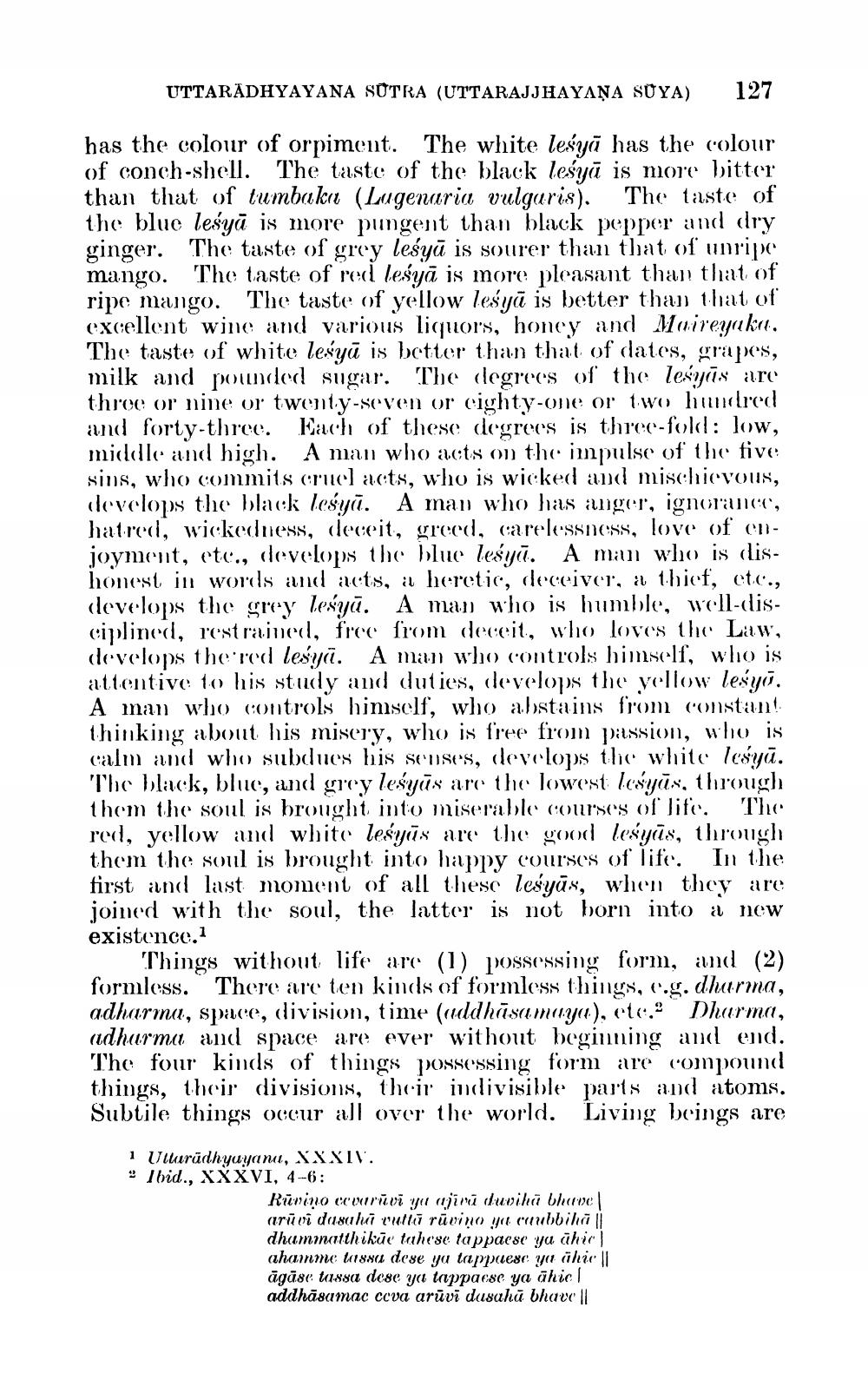________________
UTTARADHYAYANA SUTRA (UTTARAJJHAYAŅA SUYA)
127
has the colour of orpiment. The white leśyā has the colour of conch-shell. The taste of the black leśyā is more bitter than that of tumbaku (Lugenaria vulgaris). The taste of the blue leśyā is more pungent than black pepper and dry ginger. The taste of grey leśyā is sourer than that of unripe mango. The taste of red leśyā is more pleasant than that of ripe mango. The taste of yellow leśyā is better than that of excellent wine and various liquors, honey and Maireyakı. The taste of white lesyū is better than that of dates, grapes, milk and pounded sugar. The degrees of the lesyūs are throe or nine or twenty-seven or eighty-one or two hundred and forty-three. Each of these degrees is three-fold: low, middle and high. A man who acts on the impulse of the five sius, who commits cruel acts, who is wicked and mischievous, develops the black lesyū. A man who has anger, ignorance', hatred, wickedness, deceit, greed, carelessness, love of enjoyment, etc., develops the blue leśyā. A man who is dishonest in words and acts, it heretic, deceiver, a thief, etc., develops the grey leśyā. A man who is humble, well-disciplined. restrained, free from deceit, who loves the Law, develops the red lesya. A man who controls himself, who is attentive to his study and duties, develops the yellow lesyo. A man who controls himself, who abstains from constan! thinking about his misery, who is free from passion, who is calm and who subdues his seuses, develops the white lcóyū. The black, blue, and groy leśyās are the lowest lcóyās, through them the soul is brought into miserable courses of life. The red, yellow and white lesyūs are the good lesyās, through them the soul is brought into happy courses of life. In the first and last moment of all these leśyās, when they are joined with the soul, the latter is not born into a new existence.1
Things without life are (1) possessing form, ind (2) formless. There are ten kinds of formless things, c.g. dharma, adharma, space, division, time (addhāsamaya), etc. Dharma, adharma and space are ever without beginning and end. The four kinds of things possessing form are compound things, their divisions, their indivisible parts and atoms. Subtile things occur all over the world. Living beings are
1 Ullurūdhyayanu, XXXIV. • Ibid., XXXVI, 4-6:
Rūnino courūvi yu ajiru duviha bhuwel arī vi dasaha mutlu rūvino y cubbiha || dhammatthikūe tahese tappaese yu ühir! ahamme tassa dese ya tappaese ya ühiell āgāsc tassa dese ya tauppaese ya āhic! addhāsamac ceva arūvi dusahū bhavell




